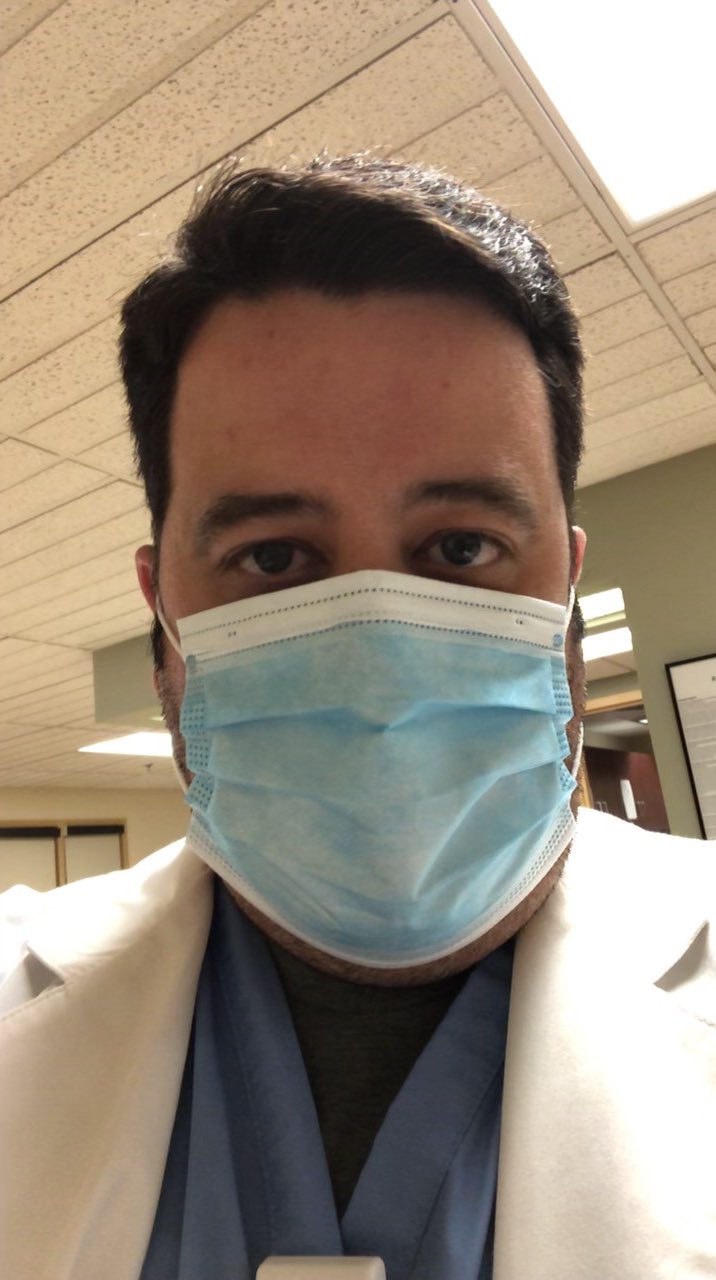
Jason Rodriquez, a Wright State University alumnus
Jason Rodriquez, a Wright State University (WSU) alumnus, now works for Kettering Health Network where he notices the effects of coronavirus.
Rodriquez attended WSU for his undergrad where he received a Bachelor of Science in Urban Affairs. While studying public administration, Rodriquez worked as a firefighter.
After graduating from WSU in 2012, Rodriquez went to Ohio University (OU) for a postback in advanced premedical so that he could apply for medical school.
Rodriquez graduated from OU in 2014 and now works for Kettering Health Network as an osteopathic physician and anesthesiologist resident.
Fewer hours and more patients
According to Rodriquez, coronavirus has caused many noticeable changes within the hospital and the resident program.
“We are not working as many hours because we’re trying to decrease our exposure to coronavirus,” said Rodriquez.
Residents also have higher patient loads when they are at work. This is due to the residents splitting the work between fewer people.
“We would call [a coworker] the ‘dirty resident’, as [that resident] was assigned to [coronavirus patients] for the day,” said Rodriguez.
Another change that residents are experiencing is restriction on the patients they are allowed to treat. In order to decrease exposure, all suspected coronavirus patients are seen by one resident for a specific day.
Being aware and cautious
The pandemic has also made Rodriquez more aware and cautious about contact and contamination.
“Good hand washing and not touching my face are things we obviously knew about, but I think with what’s going on right now, It makes it a lot more important,” said Rodriguez. “We think about all the things that we touch and contaminate on a daily basis.”
Rodriguez has two kids at home, so his routine has changed to keep everyone at home safe from what he is exposed to at work.
“I go into the hospital and change into scrubs there and I come home in street clothes,” said Rodriguez. “As soon as I walk in the door, I don’t even say hi to the kids, I go straight to the bathroom and wash up. I don’t want to risk carrying anything home with me.”
Moving forward
As the peak of the virus gets closer, Rodriquez knows that becoming exposed and getting sick is more likely.
“Seeing more cases and more patients on ventilators, that’s always in the back of our mind,” said Rodriguez.
Even though most residents are fairly young and healthy, the virus is variable and is a threat to anyone, healthy or otherwise.
“I think that more so, as we get more cases at the hospital, then that is just going to increase the risk of getting us exposed or infected,” said Rodriguez.
Pride for coworkers and community support
Rodriguez notices that he works with an amazing staff and community with continued resilience.
“We don’t know necessarily how this is all going to play out, and we definitely have our own fears,” said Rodriguez. “But then when it’s time to take care of patients, I haven’t seen anybody let that stop them from taking care of the patient.”
According to Rodriguez, the community support has been amazing all around. Local businesses donate lunches and committee members bring extra personal protective equipment or deliver homemade masks.
“It is all really appreciated,” said Rodriguez. “I think that the community as a whole has really gathered around healthcare professionals.”
- Horoscopes: What Pet Should You Adopt?
- AARC Discusses Life on Campus as a Minority
- Dayton Infrastructure: How Safe Are Our Bridges?
